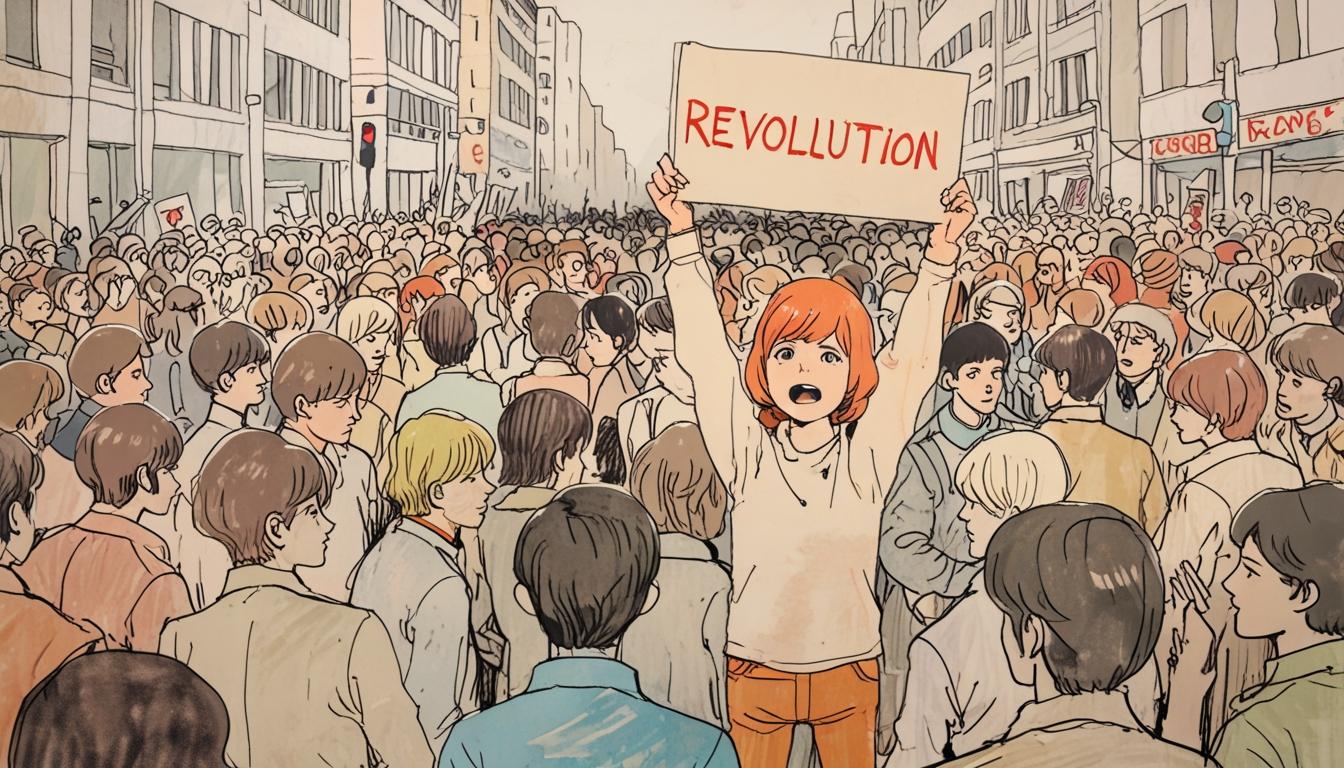Recent electoral results across industrialised nations signal a profound shift in public sentiment, marked by a growing disenchantment with established parties and a rising demand for genuine alternatives. In the United States, Germany, and the United Kingdom, citizens are increasingly seeking radical change, reflected in the emergence of alternative political movements. The echoes of this shift resonate with the Beatles’ 1968 anthem “Revolution,” illustrating a collective yearning for transformation that must be understood against the backdrop of a disruptive political landscape.
However, as voters call for revolution, a stark reality emerges: there is a willingness for change, yet many appear reluctant to accept the hardships that often accompany significant political or economic upheaval. This duality is particularly evident in the wake of Brexit, where an unsettling wave of buyer’s remorse sweeps through those who initially supported leaving the EU. The financial fallout from these choices has prompted a hard look at what genuine change really entails.
Former chief economist of the Bank of England, Andy Haldane, captured this sentiment in a recent piece for the Financial Times. He pointed out that financial markets are increasingly wary of political shifts, serving as a check against leaders who promise pie-in-the-sky solutions. The interconnected nature of global trade means that disruptive actions can have damaging repercussions, especially in terms of inflation. Haldane noted, “The excess sensitivity of financial markets provides a double-lock,” acting as a real-time disciplinary force against politicians claiming they can withstand short-term pain.
On the other side of the Atlantic, U.S. President Donald Trump has turned his ire toward financial markets, blaming their reactions for undermining his economic initiatives. His frustration follows substantial losses exceeding $6 trillion globally, impacting everyday savers and eroding consumer confidence—an example of how political incompetence can harm ordinary citizens.
Desmond Lachman from the American Enterprise Institute reinforces Haldane’s views, indicating that American consumers may thwart Trump’s bold ambitions, suggesting his flexibility is more constrained than he acknowledges. Recent rebounds in stock markets, driven by U.S. engagement with China on tariffs and a renewed focus on Ukraine, may offer a temporary balm, yet they also illustrate a sharp disconnect. Those in the lower income brackets, who feel neglected by such political manoeuvrings, may grow increasingly restless, fueling frustrations over stagnant wages and diminishing opportunities.
The spirit of 1968 echoes strongly today, as a generation emboldened by reformist and green movements steps forward. Today’s youth, often viewed as the most disadvantaged within a challenging economic landscape, are engaging with the political process more than ever, seeking leaders who resonate with their vision for a fairer society.
The ongoing tensions between desires for radical political change and the pragmatic realities of economic stability create a complex narrative for voters and policymakers alike. With the ascent of the new Labour government, the challenges ahead loom larger than ever. The transformative desires expressed in the recent elections may face critical obstacles, as the apparent disconnect between the establishment and the electorate raises essential questions about representation in these shifting times. As the new administration grapples with the consequences of their policies, it remains to be seen whether they can effectively align with the urgent demands of the populace, or whether their era will be defined by the very dissatisfaction that brought them to power.
Source: Noah Wire Services
